Programme
Complete
Preserving ecosystems in Bale
Country
Ethiopia
Running from
2014-2024
People reached
1.6 million
Key focus areas
Boost productivity
Increase incomes
Protect ecosystems
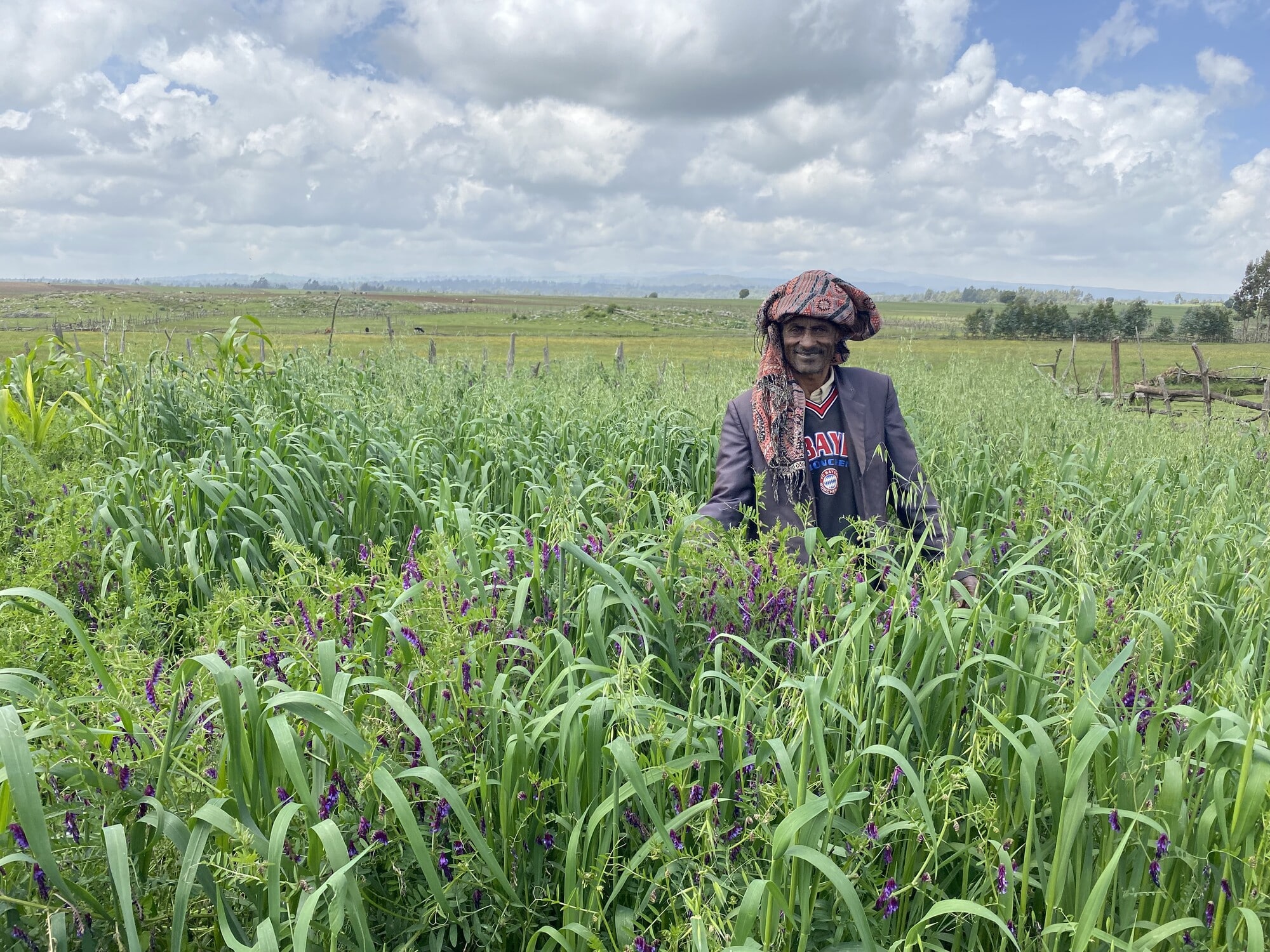
Farm Africa worked with a consortium of NGO partners, authorities and communities in Ethiopia to sustainably manage the Bale Eco-Region, a biodiversity hotspot, and enhance the livelihoods of local people, helping to reduce poverty and the current reliance on unsustainable practices.
The programme involved supporting communities to increase forest-friendly businesses and sustainably manage livestock and rangelands. The consortium partners helped promote sustainable timber harvesting and strengthened forest coffee, honey, gum and resin value chains.
We supported women and young people to increase their incomes by developing businesses in rearing goats and producing milk, energy-efficient cook stoves and eco-charcoal.
1.6M
people living locally were reached through our work in the Bale Eco-Region, with expected benefits for an estimated 30 million people who rely on the region for their water supply.
In addition, together with the Frankfurt Zoological Society and the Population, Health and Environment Consortium, Farm Africa worked with law enforcement, ranger patrols and Bale Mountains National Park management to develop policies and management strategies to protect the ecosystem.
This enabled strengthening of Participatory Forest and Rangeland Management committees to manage forests and rangelands and support community-controlled hunting areas.
25%
reduction in the conversion rate of forest to farmland.
There was also increased awareness in the community on the relationships between population, health and the environment.
The project was funded by the European Union and co-funded by the Jersey Overseas Aid Commission.

Country
Ethiopia
Key focus areas
Boost productivity
Increase incomes
Protect ecosystems
A greener future on a grand scale: a summary of the Bale Eco-region Phase II project
Ethiopia’s Bale Eco-region is an ecologically critical area and also home to many people who depend on its resources for their livelihood. Since 2014, Farm Africa has been leading a consortium to improve livelihoods in the region while ensuring the ecosystem is protected. The first phase of the project developed a management strategy for the region. Phase II (2019-2024), funded by the European Union, has scaled out the strategy to reach over 1.6 million people. This report summarises those Phase II activities and outcomes.
Download (3.96mb)
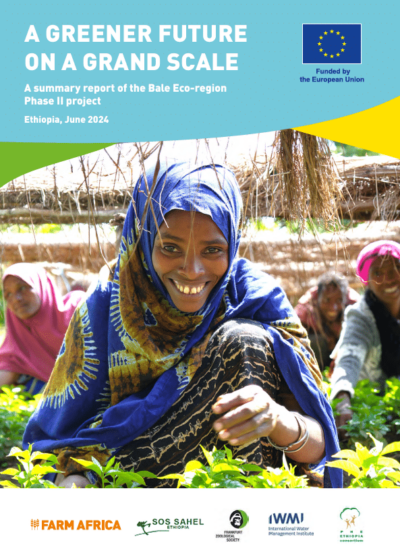
Country
Ethiopia
Key focus areas
Boost productivity
Increase incomes
Protect ecosystems
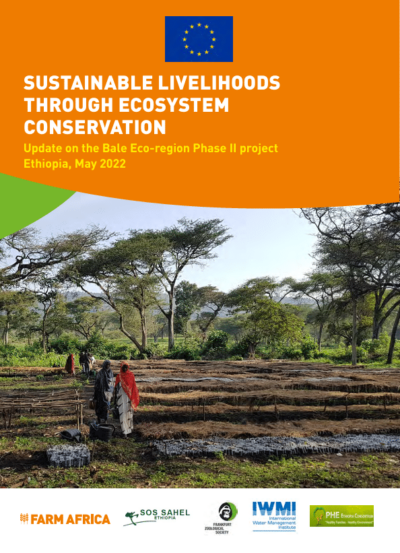
Sustainable livelihoods through ecosystem conservation: Update on the Bale Eco-region Phase II project
More info
Country
Ethiopia
Key focus areas
Boost productivity
Increase incomes
Protect ecosystems
Sustainable livelihoods through ecosystem conservation: Update on the Bale Eco-region Phase II project
The BER phase II project aims to improve the livelihoods of vulnerable people in south-eastern Ethiopia and to protect the environment through an integrated ecoregional development approach. This report gives an update on the achievements of the project and features testimonies from those directly involved.
Download (4.32mb)

Country
Ethiopia
Key focus areas
Boost productivity
Increase incomes
Protect ecosystems
Country
Ethiopia
Key focus areas
Boost productivity
Increase incomes
Protect ecosystems
Sustainable livelihoods through ecosystem conservation 2019-2024
Factsheet on Farm Africa’s Supporting Horn of Africa’s Resilience (SHARE) project, funded by the European Union. Farm Africa is working with partners to preserve Ethiopia’s Bale eco-region and boost incomes in a sustainable way.
Download (2.65mb)
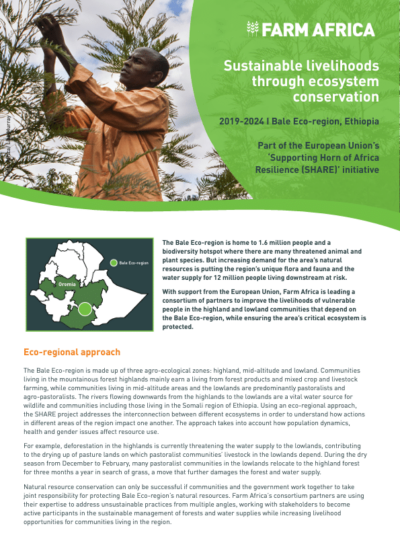
Country
Ethiopia
Key focus areas
Boost productivity
Increase incomes
Protect ecosystems
Country
Ethiopia
Key focus areas
Boost productivity
Increase incomes
Protect ecosystems
Sustainable livelihoods through ecosystem conservation
As part of the European Union’s ‘Supporting Horn of Africa Resilience’ (SHARE) initiative, Farm Africa is working to reverse the damage done to the Bale Eco-Region of Ethiopia and boost livelihoods in a sustainable way.
Download (2.49mb)
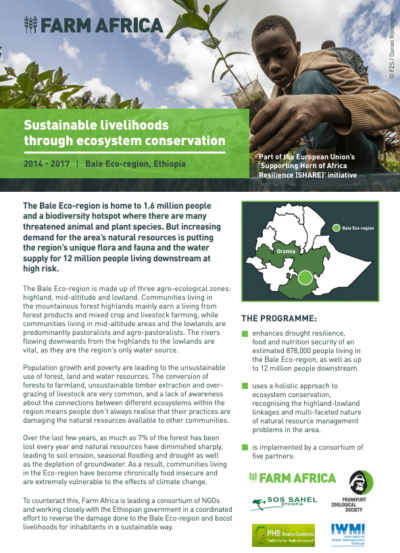
Country
Ethiopia
Key focus areas
Boost productivity
Increase incomes
Protect ecosystems

